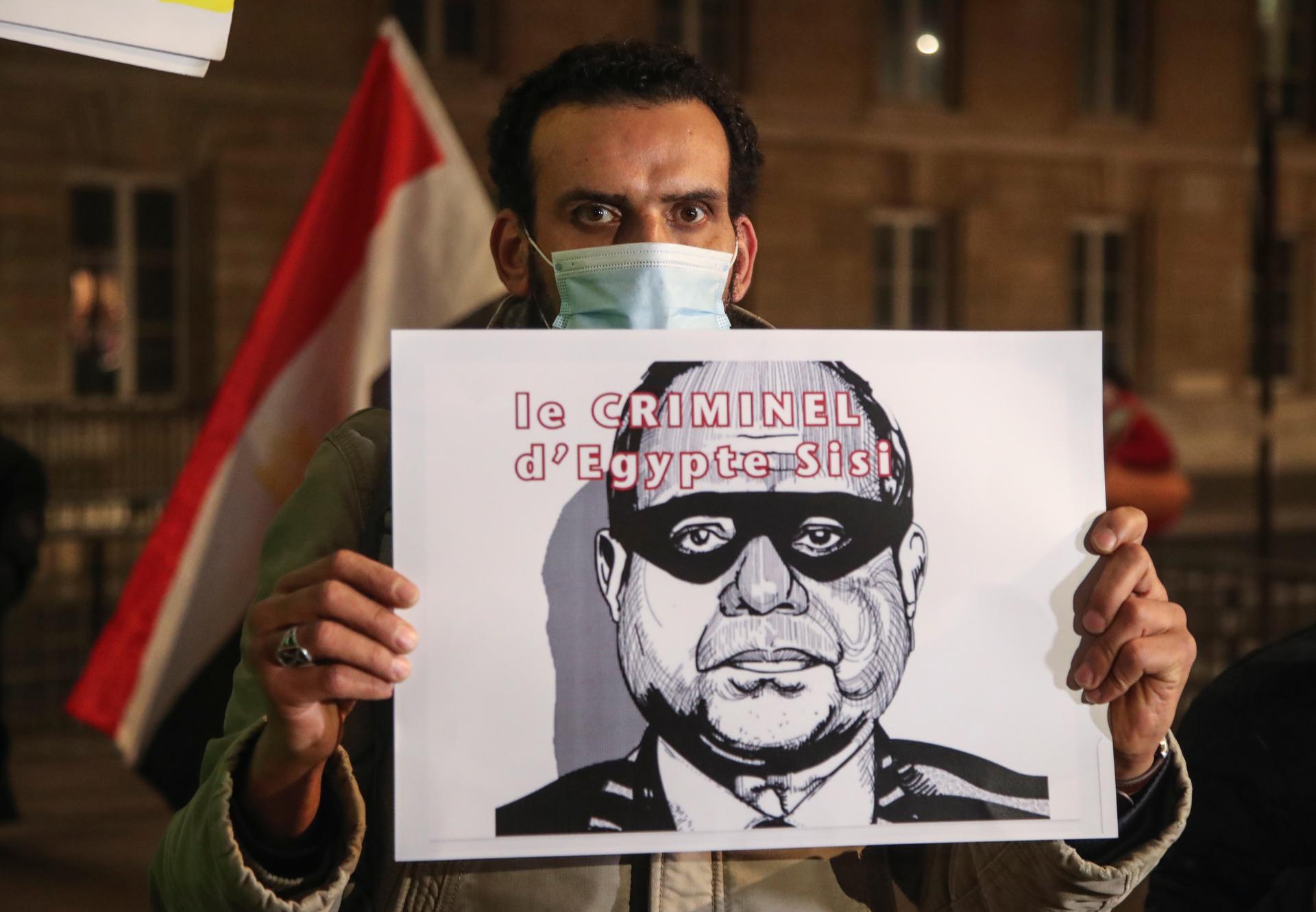On Friday, 31 countries came together during the 46th Human Rights Council session to introduce a resolution calling for the body to establish a process to document human rights abuses in Egypt.
“We recognize the role of Egypt in supporting regional stability, managing migration, fighting against terrorism,” acknowledged Finland’s ambassador to the UN, Kirsti Kauppi, representing the largest number of countries in council history to join together to condemn Egypt. “We call for accountability and [an] end of impunity.”
Related: A new US award honors anti-corruption advocates around the world
It’s the first time the UN council has weighed in on the situation in Egypt in seven years. And, it represents a policy shift by the US — which was among those countries that brought it forward.
Since the Human Rights Council’s last joint statement about Egypt, in 2014, UN investigators have documented a steady decline in freedom of expression and peaceful assembly there. Egyptian President Abdul Fattah al-Sisi’s government has detained thousands of peaceful protesters, activists and journalists, many under terrorism charges.
Torture and executions have spiked.
The recent resolution is one of the first major actions the US has been a part of since returning to the council as an observer. The Trump administration had pulled the US out in 2018, partially because of concerns of mismanagement and overreach.
Related: UN Human Rights Council starts work to address a ‘pandemic of human rights abuses’
Meanwhile, the US has given millions of dollars in military aid to Egypt annually for years. Former President Donald Trump called Sisi his favorite dictator. And, just four months ago, French President Emmanual Macron said he would not make arms sales to Egypt conditional on human rights. But France also joined the resolution on Friday.
“I think there’s been a reluctance to criticize Egypt publicly and collectively. [But] I think we’re at a moment where the survival of the human rights community in Egypt is at stake.”
Until now, “I think there’s been a reluctance to criticize Egypt publicly and collectively,” said Kevin Whelan, who represents Amnesty International at the UN in Geneva. But, “I think we’re at a moment where the survival of the human rights community in Egypt is at stake.”
A strong message from the US
Activists hope Egypt has received the message that its partners abroad will no longer give it a pass, said Allison McManus, research director at the Washington, DC-based group, The Freedom Initiative. The organization represents some Egyptian Americans being detained in Egypt.
Related: Public art honoring Egyptian American Moustafa Kassem sends universal human rights message
“Because of the place Egypt holds in the international community, it’s been very, very difficult and taken a lot of work to see this kind of strong statement and especially to get these allies on board,” she said. “So, yeah, we’ve been waiting for this, and [there’s] a lot of excitement right now among the folks that care about all of the people who are unjustly detained in Egypt.”
She says the joint resolution is the first action to signal that the Biden administration — unlike previous US administrations — no longer believes that it has to tolerate some human rights violations in Egypt in order to maintain stability and security in the region.
“So, what we’re hoping is that with the Biden administration really centering rights as part of the agenda, that it doesn’t have to be a zero-sum game that we choose rights over security, but really believing that we can have both and that indeed, we need both to have either.”
“So, what we’re hoping is that with the Biden administration really centering rights as part of the agenda, that it doesn’t have to be a zero-sum game that we choose rights over security, but really believing that we can have both and that indeed, we need both to have either,” McManus said.
Related: French report reignites debate about colonialism in Algeria
The Biden administration will soon have another big opportunity to double down on that approach. By September, Secretary of State Antony Blinken must decide whether to release military aid to Egypt that Congress has made conditional on the release of political prisoners.
Egypt’s Ministry of Foreign Affairs released a statement on Saturday rejecting the joint resolution. The head of the Egyptian Parliament’s Human Rights Committee, Tarek Radwan, said the resolution is part of an agenda pushed by groups hostile to Egypt and isn’t backed up by evidence.
Our coverage reaches millions each week, but only a small fraction of listeners contribute to sustain our program. We still need 224 more people to donate $100 or $10/monthly to unlock our $67,000 match. Will you help us get there today?
